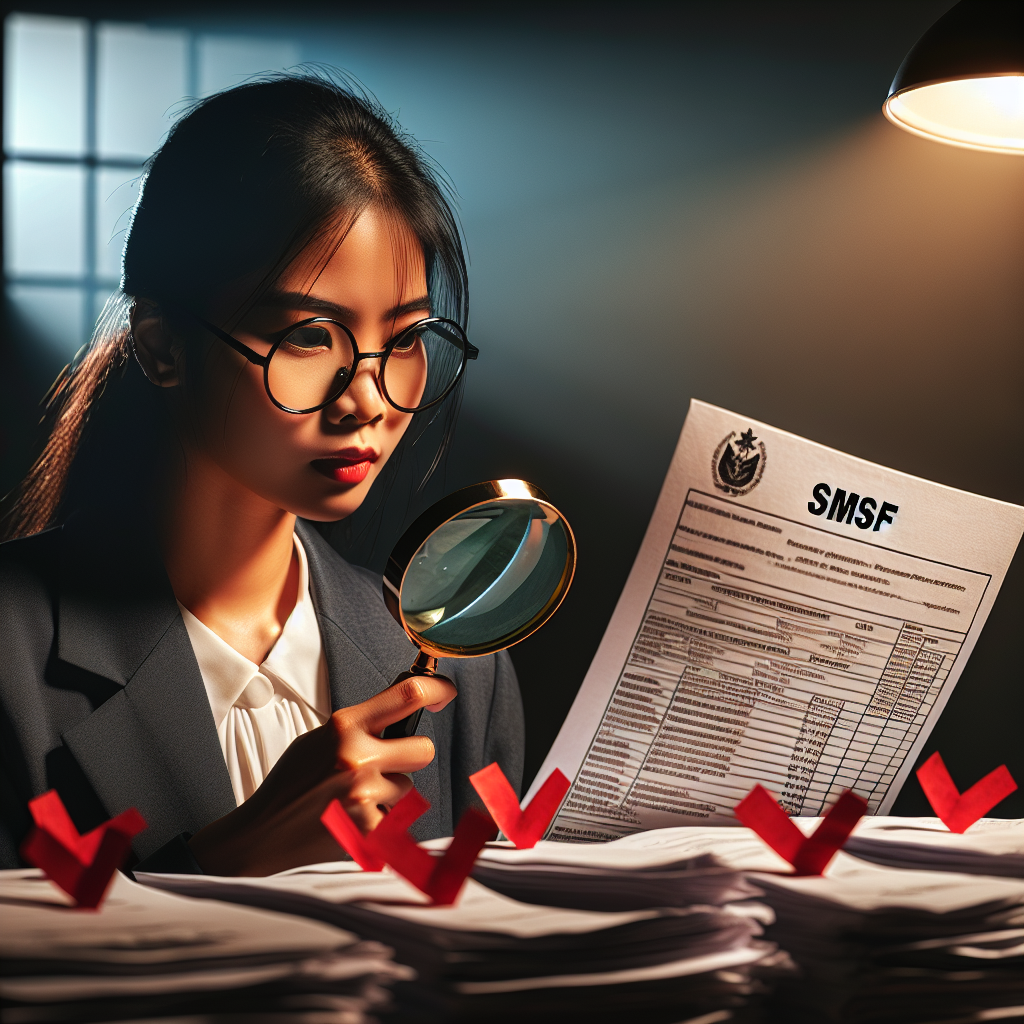Your self-managed super fund (SMSF) represents years of hard work and careful planning for your retirement. But have you considered whether your fund’s annual audit meets the strict independence requirements mandated by law? Many trustees unknowingly put their retirement savings at risk by working with auditors who fail to maintain proper independence.
Key Point: Proper SMSF auditor independence is not just a regulatory requirement—it’s a critical protection for your retirement savings.
An SMSF audit isn’t just another administrative box to tick—it’s a critical safeguard protecting your financial future. For trustees, financial advisors, and other professionals in the SMSF ecosystem, understanding auditor independence isn’t optional—it’s essential.
What Is Auditor Independence and Why Does It Matter?
Auditor independence refers to the state of mind that permits an auditor to perform their duties without being affected by influences that might compromise professional judgment, as defined in the APES 110 Code of Ethics for Professional Accountants. In simpler terms, it means your SMSF auditor must be completely free from any relationships or situations that could bias their assessment of your fund.
The independence requirements for SMSF auditors are primarily governed by the APES 110 Code of Ethics for Professional Accountants, which sets out specific standards that all auditors must follow. This code isn’t just a set of suggestions—it’s a professional obligation under the Superannuation Industry (Supervision) Act 1993 (SIS Act).
According to the APES 110 Code, SMSF auditors must maintain both “independence of mind” and “independence in appearance.” This means they must not only be objectively independent but also appear independent to any reasonable observer. The code addresses various threats to independence, including:
- Self-interest threats
- Self-review threats
- Advocacy threats
- Familiarity threats
- Intimidation threats
When an SMSF auditor maintains proper independence, they can provide an unbiased assessment of your fund’s compliance with superannuation laws and the accuracy of its financial statements. This objectivity is crucial for protecting the interests of all fund members.
“Independence isn’t just a technical requirement—it’s the foundation of trust in the entire superannuation system,” explains industry expert Sarah Thompson. “Without it, the whole purpose of having an audit is undermined.”
Common Compliance Issues That Put Your Retirement at Risk
Despite clear guidelines, many SMSF auditors still fall short of meeting independence requirements. Here are some of the most common compliance issues that could put your retirement savings at risk:
Warning: The following compliance issues are frequently targeted by ATO auditors and can result in severe penalties for your fund.
1. Reciprocal Auditing Arrangements
One of the most problematic practices is “reciprocal auditing,” where two accountants audit each other’s SMSF clients. This creates an obvious conflict of interest, as each auditor may be hesitant to identify issues in the other’s work for fear of reciprocal scrutiny.
The Australian Taxation Office (ATO) has been increasingly targeting these arrangements, reviewing auditors involved in such practices. If your auditor is engaged in reciprocal auditing, your fund could face significant compliance risks.
2. Multiple Services from the Same Firm
Another common issue arises when the same accounting firm provides both accounting and auditing services for an SMSF. This creates a self-review threat, as the auditor would essentially be reviewing their own work or the work of their colleagues.
The APES 110 Code specifically addresses this situation, requiring firms to implement appropriate safeguards or, in many cases, simply refuse to provide both services to the same client.
3. Financial Relationships with Clients
SMSF auditors must avoid having financial interests in the funds they audit. This includes:
- Direct financial investments
- Loans to or from the fund or its members
- Business relationships with the fund or its members
- Fee arrangements that create incentives for particular outcomes
James Wilson, an SMSF compliance consultant, notes: “I’ve seen cases where auditors owned shares in the same unlisted companies as the SMSF they were auditing. This creates an undeniable conflict of interest that compromises the entire audit process.”
4. Personal Relationships
Close personal relationships between auditors and SMSF trustees can also compromise independence. Family relationships are an obvious concern, but close friendships and other personal connections can be just as problematic.
The ATO has referred numerous auditors to the Australian Securities and Investments Commission (ASIC) for auditing funds belonging to family members or close friends. These referrals can result in penalties, conditions being placed on the auditor’s registration, or even deregistration.
5. Single-Source Referrals
Receiving a significant portion of audit work from a single referral source can create economic dependence that threatens independence. The ATO specifically targets SMSF auditors who receive the majority of their referrals from a single source, as this can create pressure to please that source by being less rigorous in their audits.
“When more than 20% of an auditor’s revenue comes from one referral source, it raises serious questions about their ability to remain truly independent,” says regulatory expert Michael Chen. “The economic pressure to maintain that relationship can subtly influence audit outcomes.”
The Real Impact of Non-Compliance on Your Financial Security
When SMSF auditor independence requirements aren’t met, the consequences can be severe and far-reaching for trustees:
⚠️ Risk Alert: Non-compliant SMSF audits can lead to significant financial penalties and may derail your retirement plans.
Financial Penalties and Additional Taxes
The ATO can impose administrative penalties of up to $13,320 (as of 2024) per trustee for serious contraventions. Additionally, your fund could be deemed non-complying, resulting in its assets and income being taxed at the highest marginal rate—currently 45%.
Consider this real-world example: In 2023, an SMSF with $1.2 million in assets was deemed non-complying after an ATO review discovered their auditor had been preparing the fund’s financial statements for years before auditing them. The resulting tax bill exceeded $400,000, devastating the retirement plans of the trustees.
Rectification Costs
If independence issues lead to missed compliance problems, you may face significant costs to rectify these issues. This often involves legal fees, accounting expenses, and potentially unwinding non-compliant investments at inopportune times.
“The costs of fixing compliance issues identified years after they occur are invariably much higher than preventing them in the first place with a proper independent audit,” explains financial advisor Rebecca Wong.
Delayed Retirement Plans
Perhaps most devastating is the potential impact on your retirement timeline. Significant financial penalties or forced restructuring of investments can set back retirement plans by years or even decades.
One SMSF trustee shared their experience: “We had to postpone our retirement by five years after discovering our fund had been non-compliant for years. Our auditor was a family friend who never identified issues with related-party transactions. The financial and emotional toll has been enormous.”
Loss of SMSF Status
In extreme cases, the ATO can force your fund to be wound up, requiring you to transfer your retirement savings to an APRA-regulated fund and losing the control and flexibility that led you to establish an SMSF in the first place.
Why Independence Matters Beyond Compliance
While avoiding penalties is important, the value of auditor independence extends far beyond mere regulatory compliance:
Protection Against Fraud and Errors
An independent auditor serves as a critical line of defense against fraud, errors, and mismanagement. When auditors maintain proper independence, they’re more likely to identify and report issues that could otherwise go undetected.
Studies have shown that funds with truly independent auditors are significantly less likely to experience fraud or major compliance issues. This protection is especially valuable as your retirement savings grow and your investment strategies become more complex.
Quality Financial Reporting
Independent audits improve the quality and reliability of your fund’s financial reporting. This gives you more accurate information for making investment decisions and planning your retirement.
“Good decision-making requires good information,” notes financial strategist David Martinez. “An independent audit provides assurance that the financial information you’re using to plan your retirement is accurate and reliable.”
Peace of Mind
Perhaps the most valuable benefit of proper auditor independence is peace of mind. Knowing your retirement savings are being properly managed and supervised allows you to focus on enjoying life rather than worrying about compliance issues.
Long-term Financial Security
Ultimately, auditor independence contributes to the long-term security of your retirement savings. By ensuring your fund operates within the rules and maintains accurate financial records, independent audits help protect your financial future.
Ensuring Your SMSF Audit Meets Independence Requirements
As an SMSF trustee or financial professional, how can you ensure your fund’s audit meets independence requirements? Here are some practical steps:
Pro Tip: When selecting an SMSF auditor, prioritize independence credentials over cost to protect your long-term financial interests.
Separate accounting and auditing services: Use different firms for preparing financial statements and conducting audits, as recommended in our SMSF Audit Requirements guide.
Ask direct questions about independence: Before engaging an auditor, ask specific questions about their independence policies and potential conflicts.
Check auditor registration: Verify that your auditor is registered with ASIC as an approved SMSF auditor.
Look for specialization: Consider auditors who specialize in SMSFs rather than generalists who may be less familiar with specific independence requirements.
Review the engagement letter: Ensure the auditor’s engagement letter addresses independence and confirms they comply with APES 110.
Watch for warning signs: Be cautious of unusually low fees, rushed audits, or auditors who never identify issues or ask questions.
The Path Forward: Integrity, Expertise, and Empowerment
Understanding and adhering to SMSF auditor independence requirements isn’t just about ticking regulatory boxes—it’s about protecting your financial future. At Aries Financial, we believe in the fundamental principles of integrity, expertise, and empowerment in all aspects of SMSF management.
Just as we maintain the highest standards of compliance and transparency in our SMSF lending practices, we encourage all trustees to demand the same standards from their auditors. Your retirement security depends on it.
The philosophy that guides our approach to SMSF lending—prioritizing long-term financial security, providing expert guidance, and empowering informed decision-making—applies equally to the audit process. By insisting on proper auditor independence, you’re not just complying with regulations; you’re taking control of your financial future.
As Australia’s trusted SMSF lending specialist, Aries Financial understands the importance of working with professionals who maintain the highest ethical standards. When you partner with experts who prioritize integrity and compliance, you build a stronger foundation for your retirement investments.
Don’t risk your retirement with non-compliant audits. Ensure your SMSF auditor meets all independence requirements, and rest assured that your hard-earned retirement savings are protected by proper oversight and genuine professional objectivity. Your future self will thank you for it.


